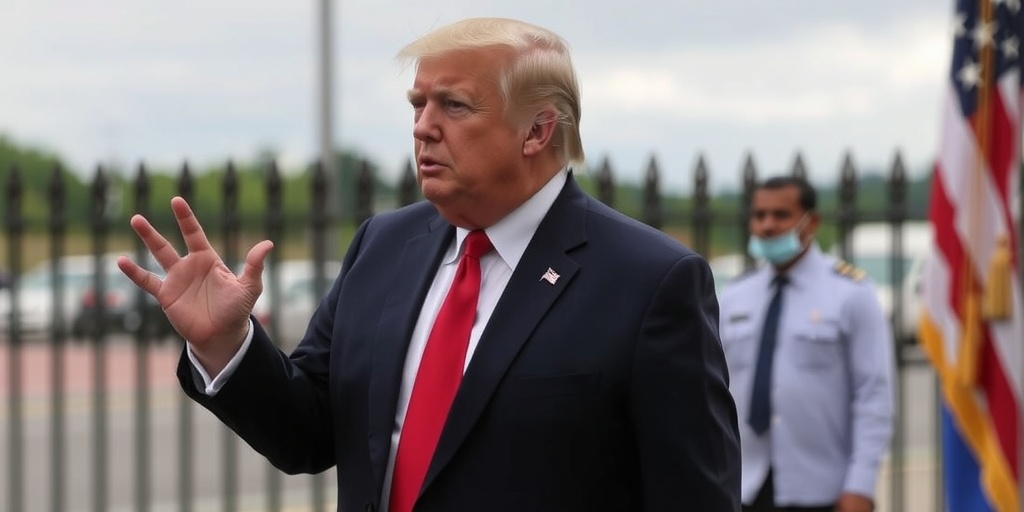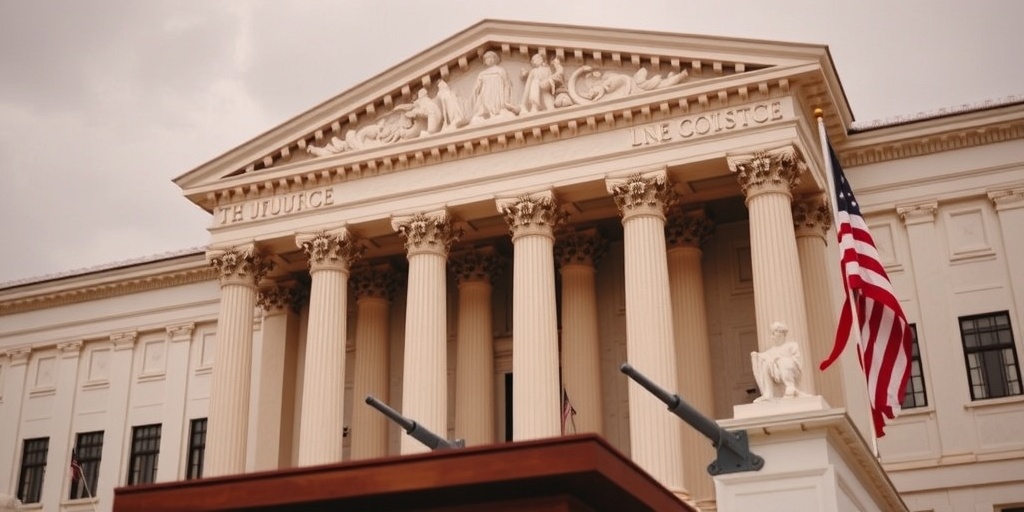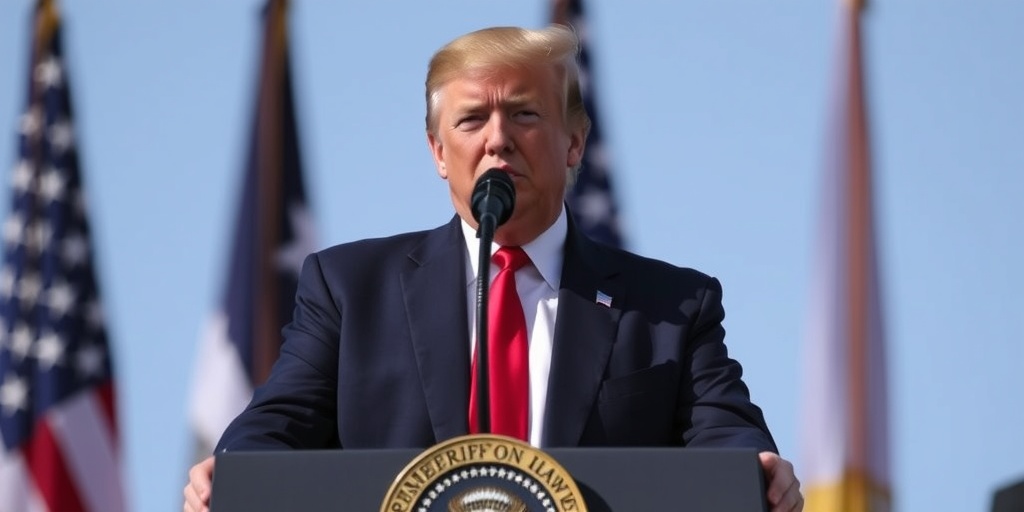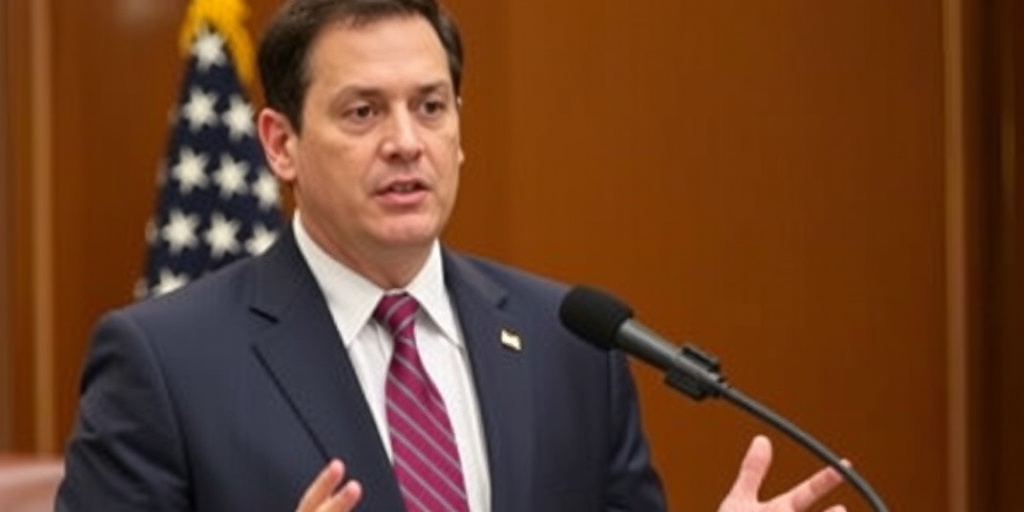Now Reading: Trump Ends Protections for Haitians, Risking Deportation
-
01
Trump Ends Protections for Haitians, Risking Deportation
Trump Ends Protections for Haitians, Risking Deportation

Trump Administration Moves to Terminate Protections for Haitian Immigrants
In a decisive shift in immigration policy, the Trump administration announced on Thursday that it would terminate protections for hundreds of thousands of Haitians residing in the United States, placing them at risk of deportation as early as this summer. This plan was detailed in government documents and confirmed by a senior official within the Department of Homeland Security (DHS).
The directive, signed by Secretary of Homeland Security Kristi Noem, represents the latest measure in President Trump’s expansive crackdown on immigration. This action particularly affects individuals who had been granted Temporary Protected Status (TPS), a humanitarian provision designed to shield people in the U.S. who cannot safely return to their home countries due to natural disasters or armed conflicts. Currently, over 500,000 Haitians hold this status.
Before leaving office, former President Joseph R. Biden Jr. had extended deportation protections for Haitian immigrants by 18 months. However, with Noem’s recent decision, those protections are now set to expire in August, moving the deadline up significantly from the previously established date of February.
As the situation unfolds, Secretary Noem now faces the crucial decision of whether to completely withdraw TPS protections for Haitians, a move that seems likely given the administration’s recent stance. Critics of the TPS program, including Trump, argue that it has outlived its intended purpose and has become a means for individuals to remain in the U.S. indefinitely rather than as a temporary refuge during crises.
Haitian immigrants have largely relied on TPS since it was first established in the aftermath of the catastrophic earthquake that struck Haiti in January 2010, under President Obama’s administration. Many have lived in the U.S. under this status for over a decade, with significant reliance on the work permits associated with it.
The tough stance on immigration continues to extend beyond just the Haitian community. Last month, the Trump administration made headlines by announcing that Venezuelans would lose their TPS protections starting in April — a change that affects approximately 600,000 Venezuelans who had been assured protection and work permits until the fall of 2026.
Trump, expressing his views on the TPS program during an October interview, made clear his intent to revoke protections for Haitian immigrants. He stated, “Absolutely I’d revoke it,” spotlighting his controversial comments linking Haitians to unfounded claims about animal consumption in Ohio.
According to a DHS official who spoke on condition of anonymity, the administration decided to reduce the duration of protections for Haitians to expedite the final decision process and prevent prolonged uncertainty.
In response to these significant policy cuts, advocates for immigrant rights have already initiated legal challenges against the Trump administration’s actions regarding the TPS program. During the first Trump term, attempts to terminate TPS for certain countries faced obstacles in federal courts, and a similar outcome is anticipated for the current legal assertions.
Recently, a coalition of immigrant advocates filed a lawsuit against the administration’s decision to cut TPS for Venezuelans, arguing that the move is unlawful. Emi MacLean, an attorney with the ACLU of Northern California, stated, “Venezuela is in crisis. Even Trump admits that. The influx of Venezuelans to the United States due to their country’s humanitarian crisis is exactly the reason that TPS exists.”
Legal experts warn that the reduction in protection time for Haitians could have detrimental effects. Ahilan Arulanantham, an attorney with the UCLA School of Law’s Center for Immigration Law and Policy, underscored the gravity of the situation, pointing out that “TPS has served as a crucial lifeline for many members of the Haitian community, allowing them to live and work in the United States at a time when Haiti is experiencing tremendous political, social, and economic instability.”
The Biden administration previously justified the extension of TPS for Haitians by citing ongoing violence and political turmoil plaguing Haiti. Advocates for the Haitian community express deep concerns over the implications of the administration’s recent move.
Sherika Blanc, a 34-year-old Haitian immigrant who has maintained her TPS status since its inception, lamented the decision as devastating. Having been a plaintiff in the lawsuit that halted the Trump administration’s earlier attempts to end protections for Haitians in 2018, Blanc voiced her profound worries about the future. “My heart is breaking and just that uncertainty of what could happen and the conditions of Haiti right now,” she expressed, mentioning that she is contemplating leaving the United States with her four American-born children.
Blanc’s poignant statement, “Basically, we’re not wanted,” encapsulates the distressing reality for many immigrant families facing the prospect of losing their livelihoods and homes due to policy shifts amid ongoing crises in their countries of origin. As the fate of Haitian TPS holders hangs in the balance, many await further developments on what actions the administration will take next.
Stay Informed With the Latest & Most Important News
Previous Post
Next Post
-
 01New technology breakthrough has everyone talking right now
01New technology breakthrough has everyone talking right now -
 02Unbelievable life hack everyone needs to try today
02Unbelievable life hack everyone needs to try today -
 03Fascinating discovery found buried deep beneath the ocean
03Fascinating discovery found buried deep beneath the ocean -
 04Man invents genius device that solves everyday problems
04Man invents genius device that solves everyday problems -
 05Shocking discovery that changes what we know forever
05Shocking discovery that changes what we know forever -
 06Internet goes wild over celebrity’s unexpected fashion choice
06Internet goes wild over celebrity’s unexpected fashion choice -
 07Rare animal sighting stuns scientists and wildlife lovers
07Rare animal sighting stuns scientists and wildlife lovers





















